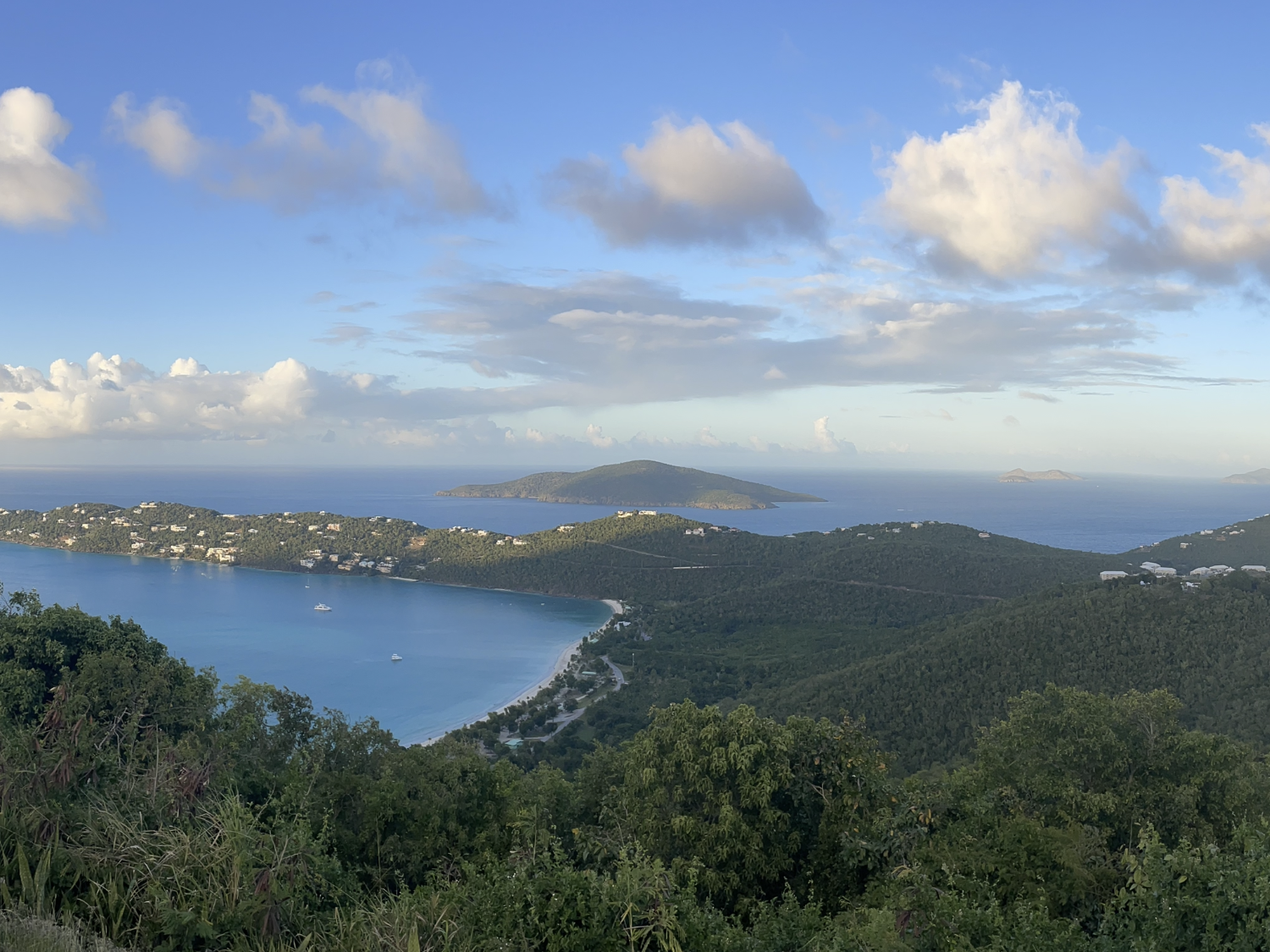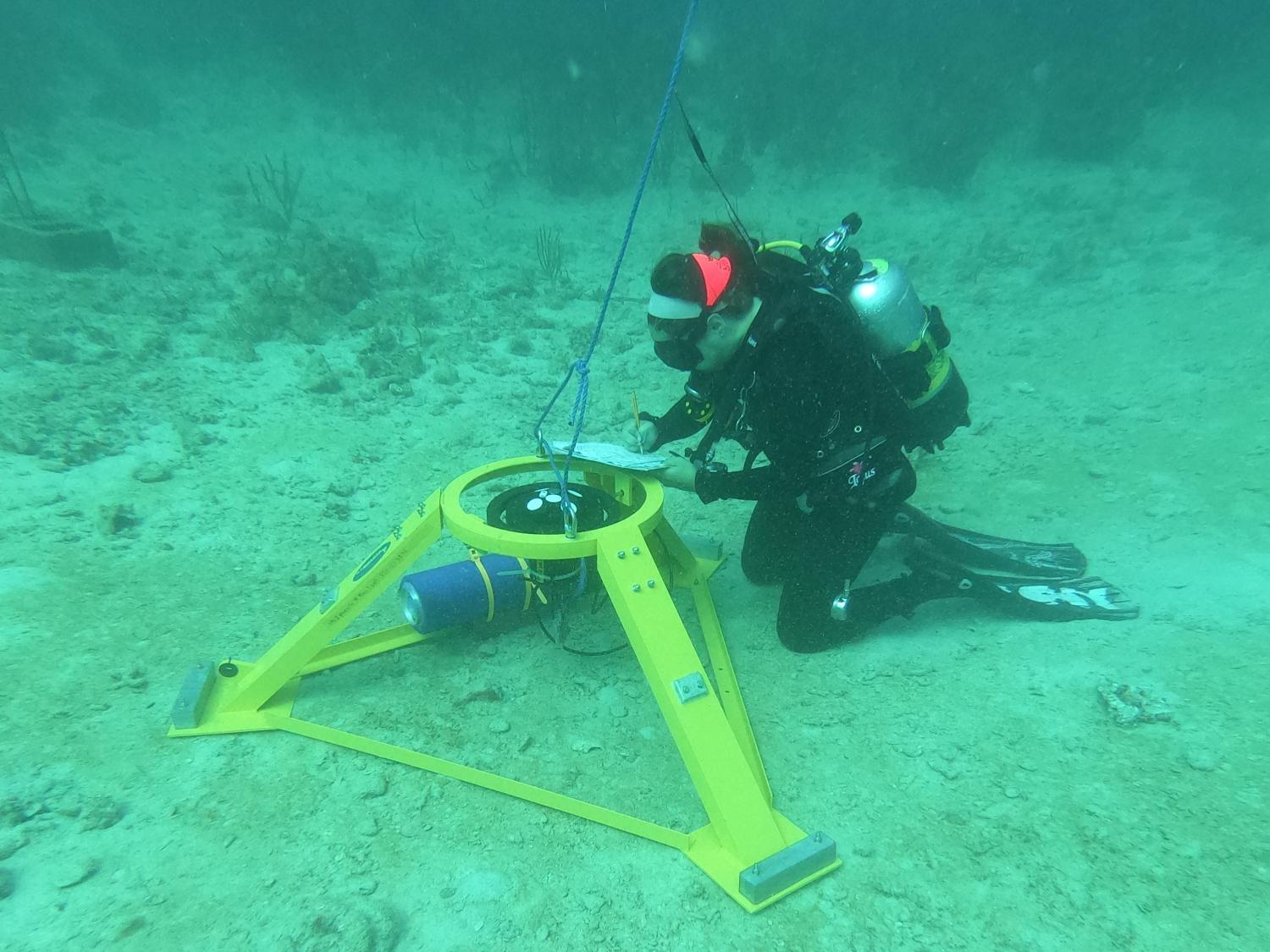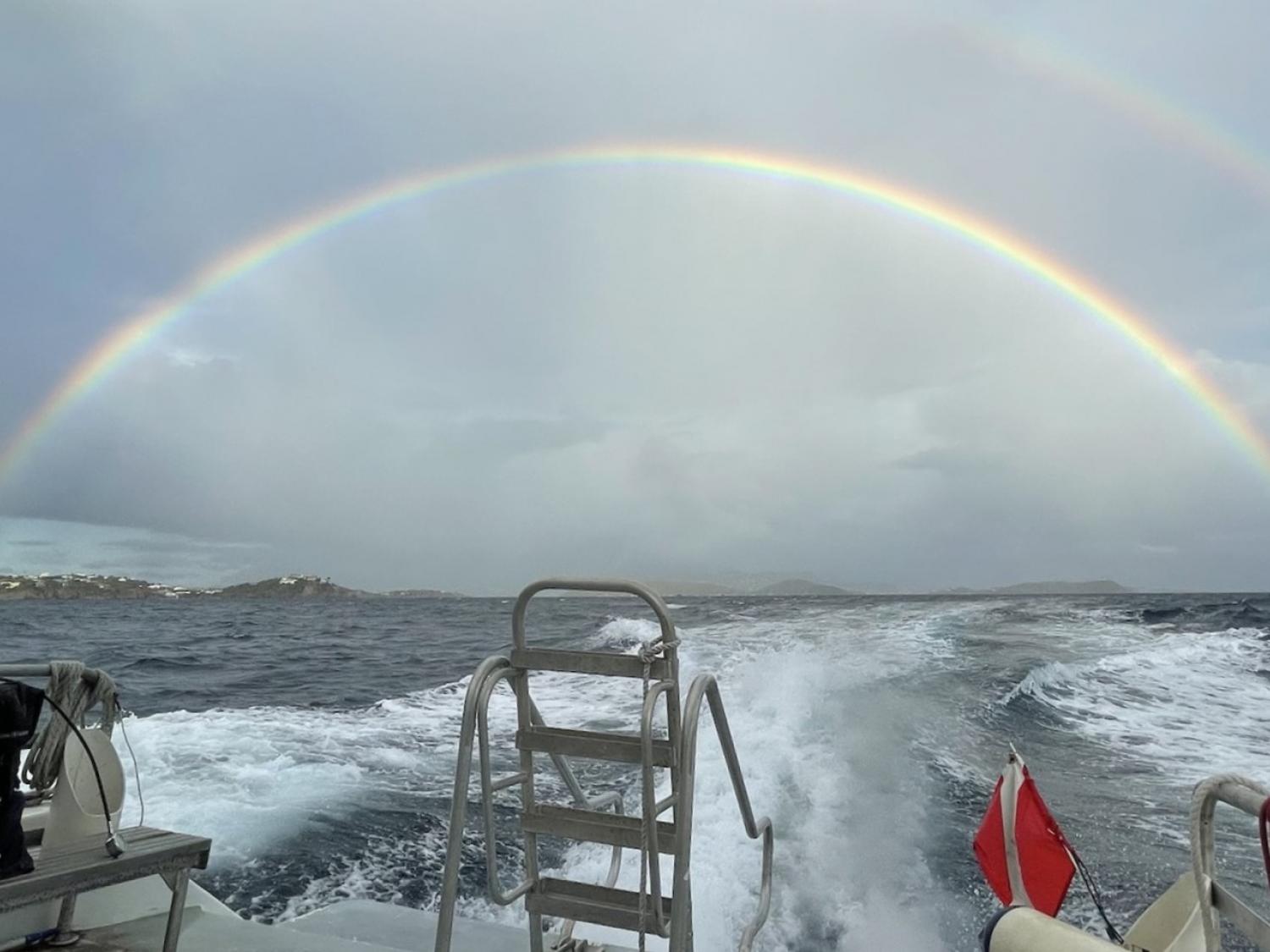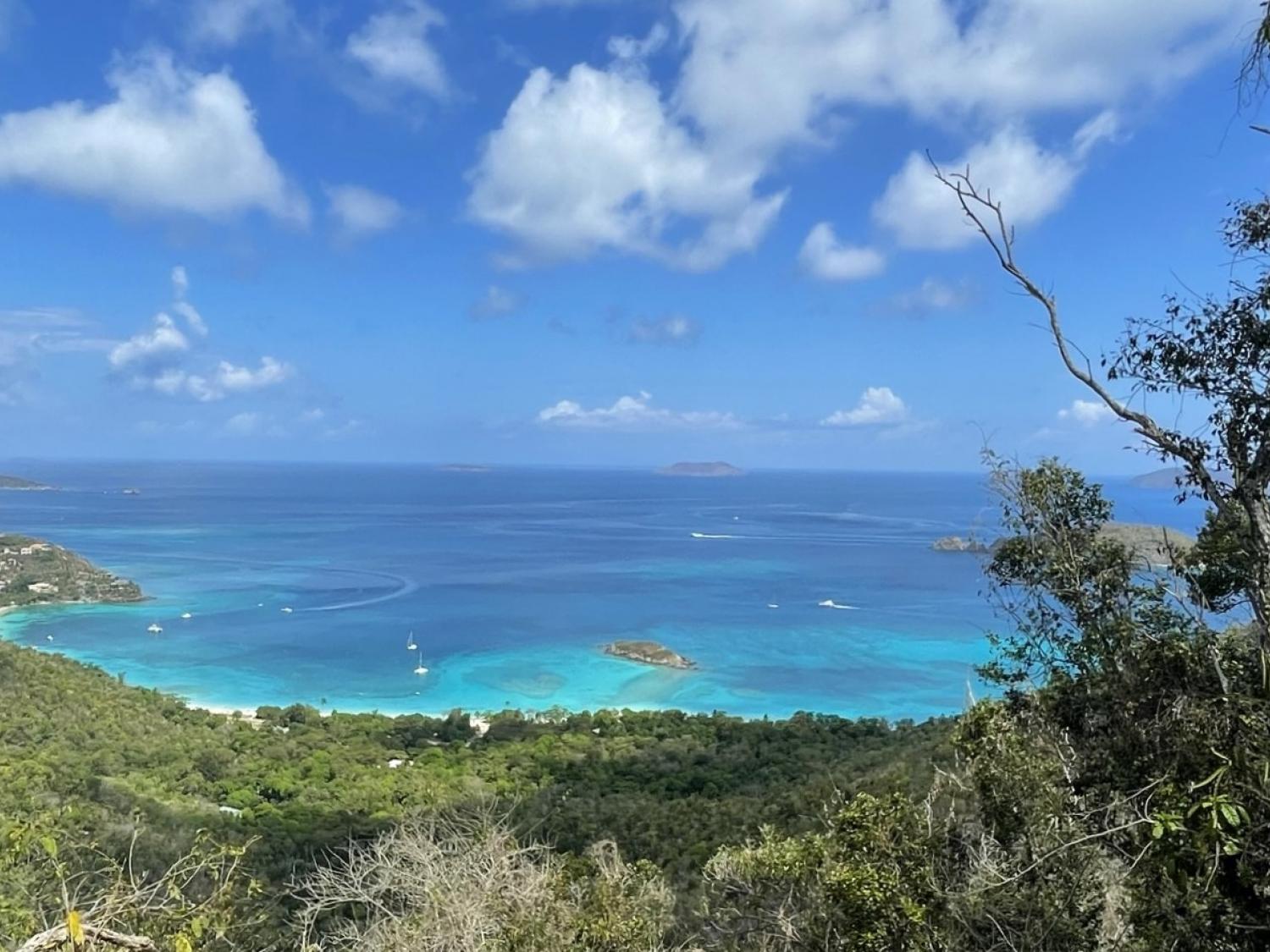St. Thomas, Virgin Islands, USA
The US Virgin Islands are home to a diverse array of marine environments, from coral reefs to mangroves to sandy shores, that support ecologically and culturally fascinating communities. These environments are right in the backyard of the University of the Virgin Islands, which provides an incredible venue for advancing research on critical marine communities.
The United States Virgin Islands (USVI) consists of three main islands—St. Thomas, St. John, and St. Croix—along with numerous smaller islands and cays in the Caribbean Sea. The marine environment in the USVI is home to a diverse range of ecosystems, including shallow and mesophotic coral reefs, mangrove forests, sandy beaches, and seagrass meadows. These habitats combine to serve as the cultural and ecological foundation for Virgin Islanders, from serving as habitat for local commercially important fisheries species to supporting populations of critically endangered species, such as hawksbill sea turtles and Nassau grouper.
Established in 1962, the University of the Virgin Islands (UVI) is a public, historically black university in the USVI. The university is known for its strong programs in marine biology and environmental science, reflecting the unique ecological aspects of the USVI. As one of the top research centers in the Caribbean, the Center for Marine and Environmental Studies (CMES) was established in 1999 with the mission to offer students and researchers a dynamic atmosphere to study tropical marine and environmental issues and increase awareness about marine topics in the VI. CMES Faculty and staff are engaged in research related to coral reef and mangrove ecology and restoration, seagrass dynamics, and fisheries ecology.
MarineGEO Team
- Principal Investigator: Kayla Blincow
Participating Institutions
Social Media & Other Resources
- Kayla Blincow's ResearchGate Profile
- Twitter/X: @the_cow_is_co



